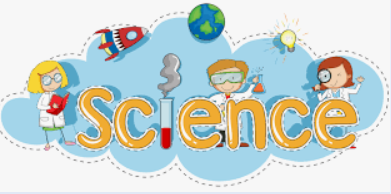The Importance of Science!

As adults, we only need to look around to recognise the importance of science in our modern world. It has been essential in the development of medicines, travel, the internet and food production, to name just a few! I’m sure very few of us would want to go back in time to live without these modern advances. BUT, there are some drawbacks to an advancing world, if you are not well-prepared for it.
Now more than ever, young people are regularly being presented with an overwhelming amount of information from social media, influencers and celebrities. This information can be presented to them as “fact”, but often there is very little scientific evidence to support it. In some cases, it is outright falsehood, being used to generate clicks (which equal money for the website) or to slowly encourage people towards darker and more dangerous beliefs.
What is the solution?
For our young people, a good foundation in science will help them to make sense the world around them, problem solve and make informed decisions about their own lives and beliefs. When they understand science and scientific thinking, they are much better placed to spot ideas that aren’t well-supported by evidence and to question data.
Science is vital for understanding – and improving – the world we live in. A good science education will excite the imagination and inspire and develop valuable skills for life and work.
The Royal Society
In lessons, we help to build these skills with our students by discussing key areas of science which can be controversial.
- Space physics – Is the Earth flat?
- Biology - How vaccines work + why we are all safer when more people use them
- Chemistry – Is global warming real + do we really need to change our lifestyles?
- Waves + radiation - Are phones and phone masts dangerous?
- Evolution – Do we come from monkeys?
We also help students to develop their critical thinking and to develop scientific reasoning.
- What is data in a graph/table showing them?
- How can we improve the data we collect?
- How to evaluate and compare data
- How do you test a theory scientifically?
- What processes do scientists use to check their research?
How can I support at home?
- Discuss interesting science topics that are in the news. Share your thoughts on them and listen to your child’s thoughts in return.
- Get into the habit of asking what an article doesn’t tell them and encourage them to find the answer from a trusted source.
- Help them find trusted sources to check any theories they come across e.g. The BBC + well-known news outlets, fullfact.org, university websites, Library books.